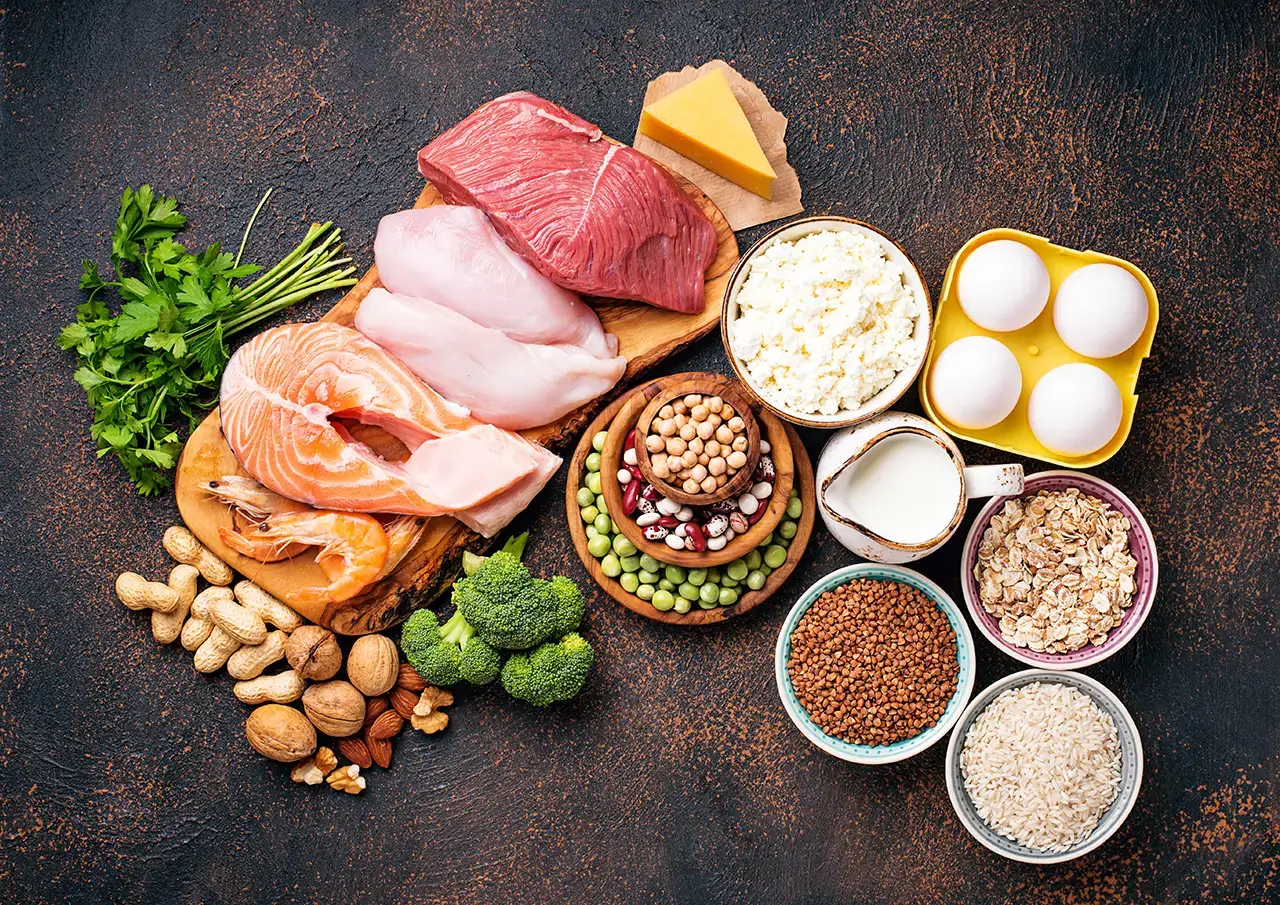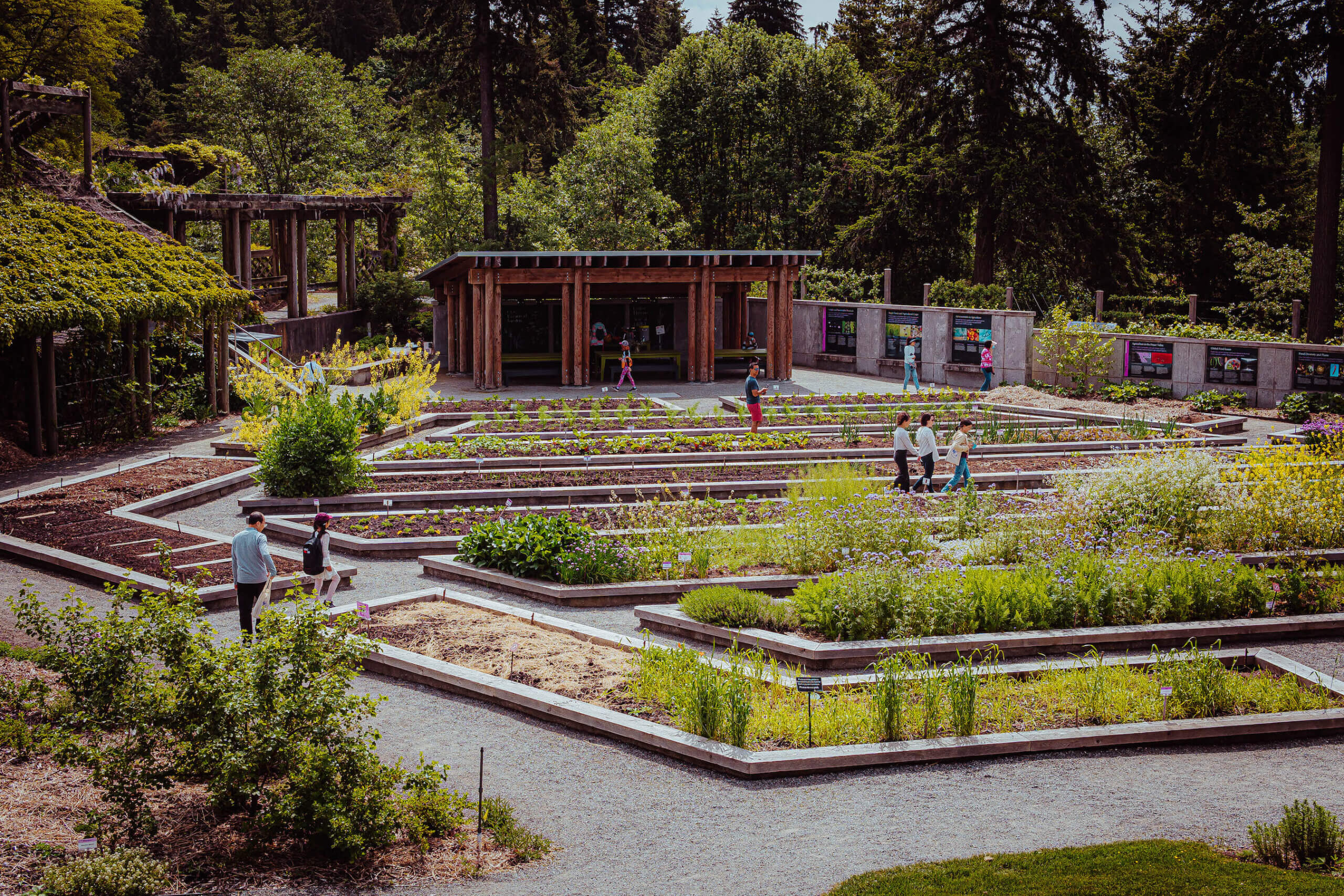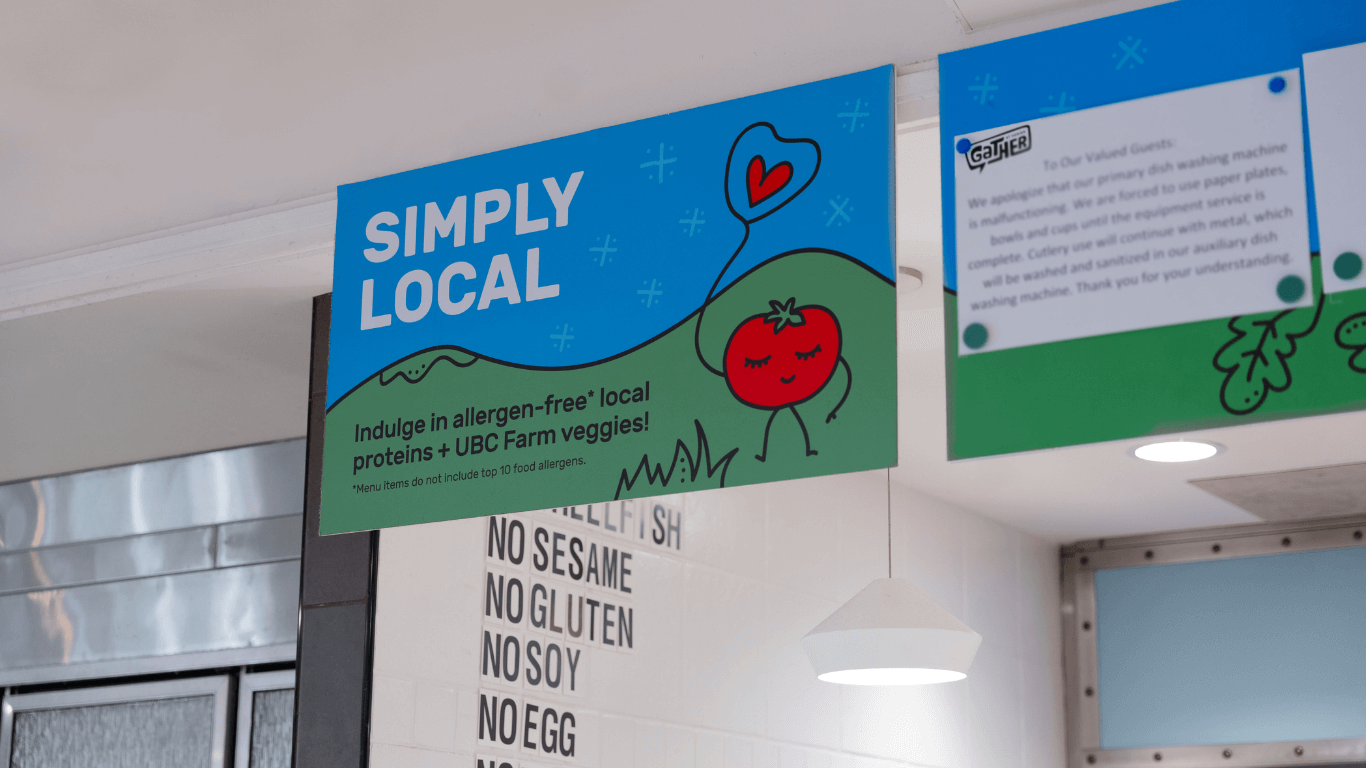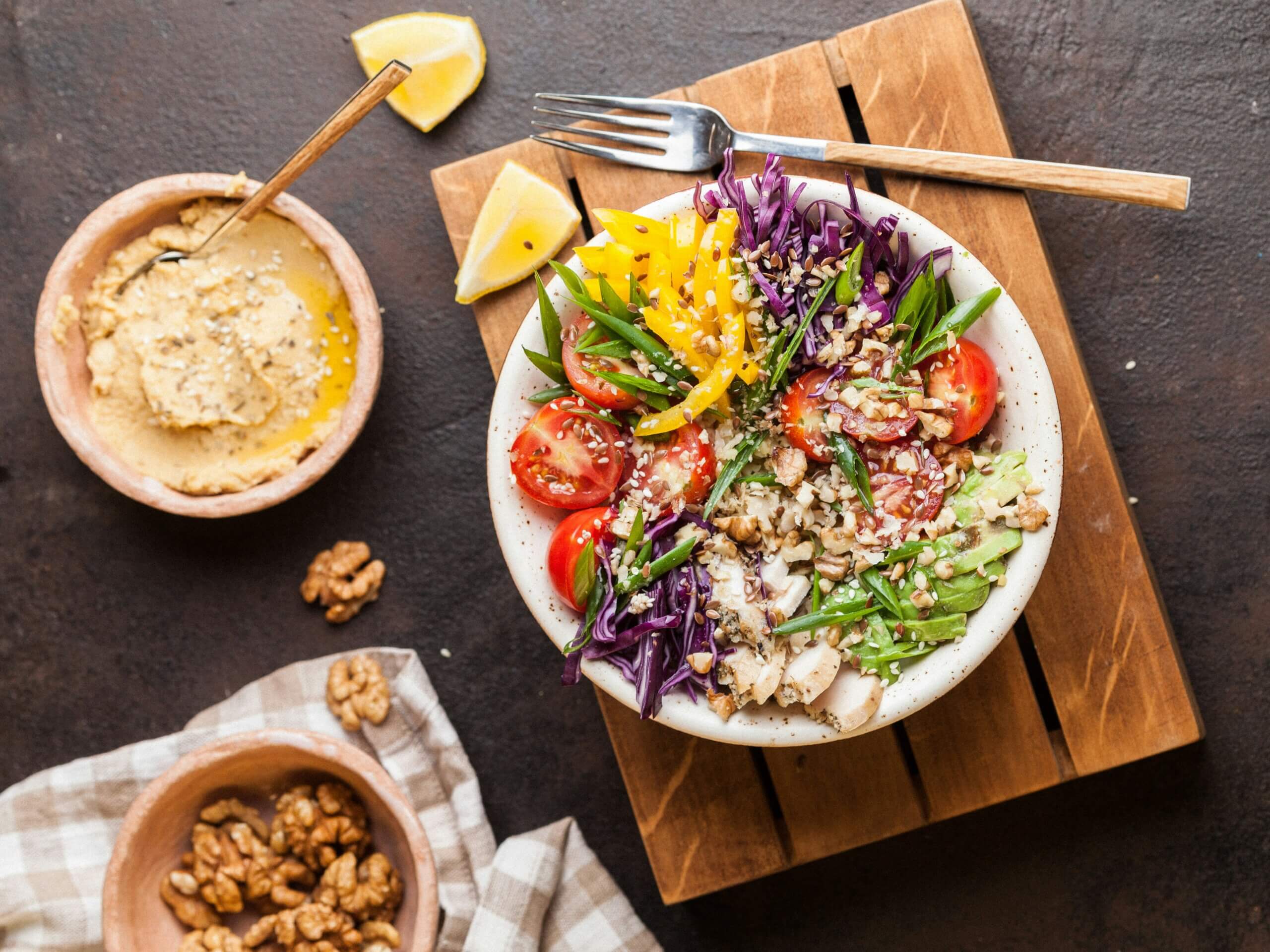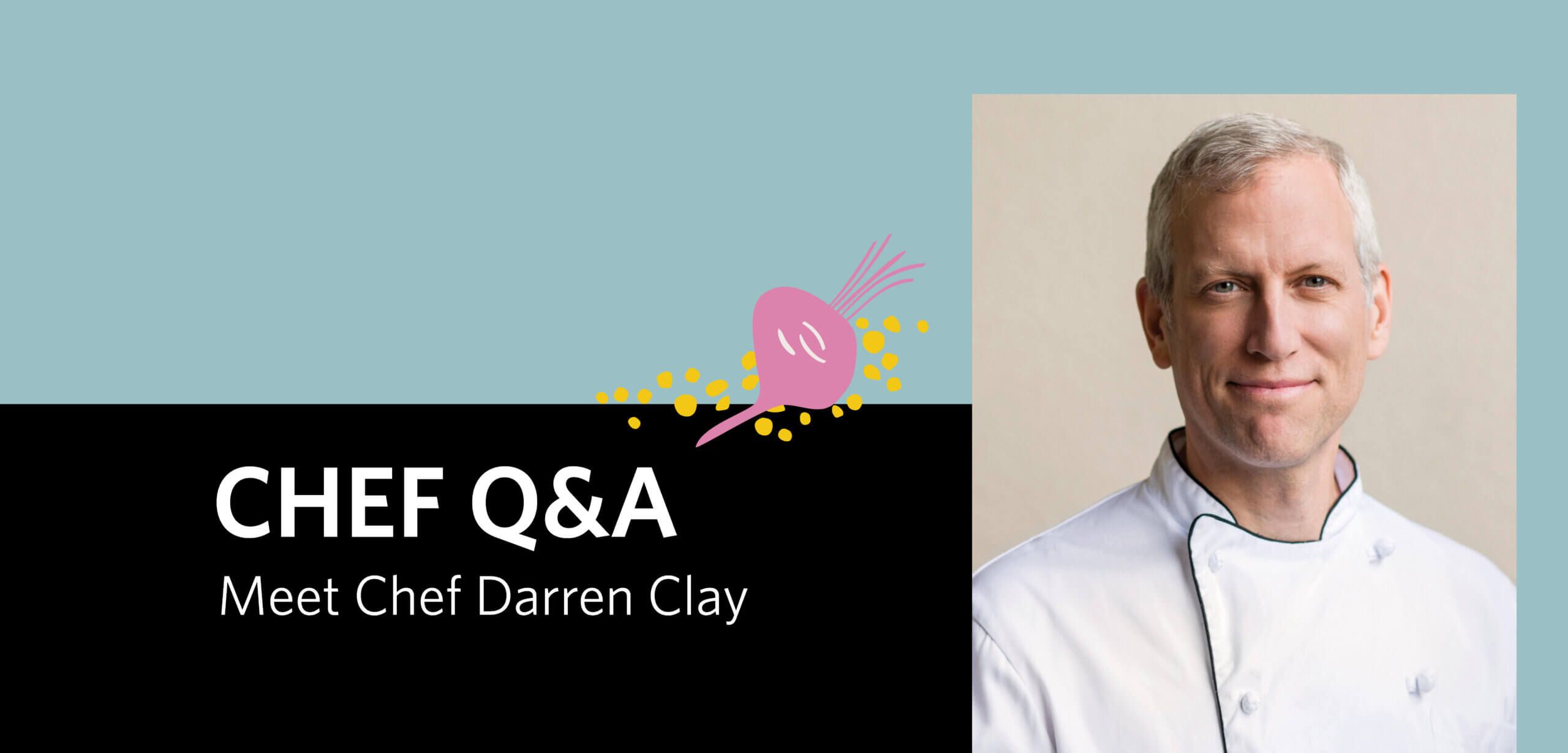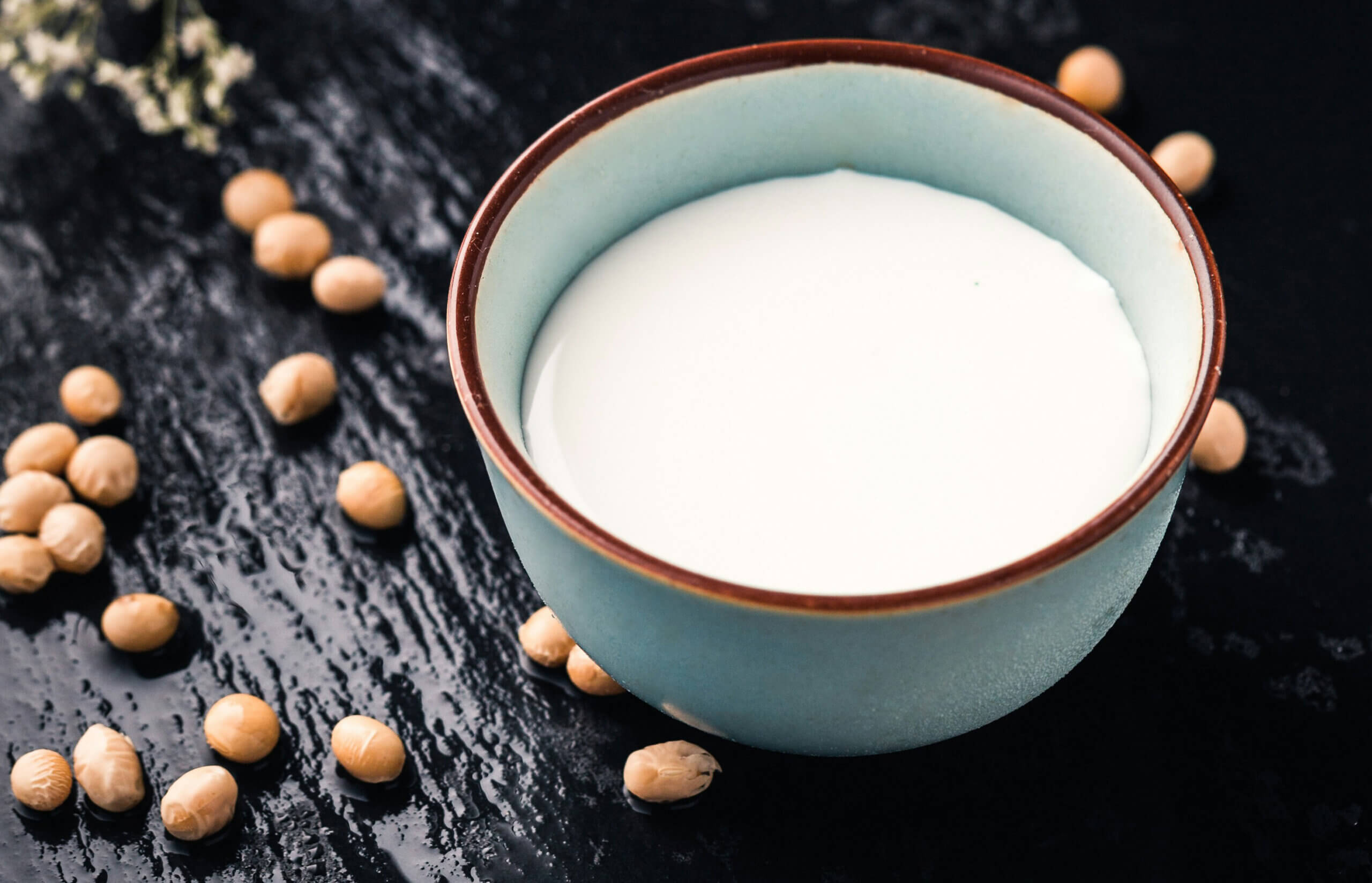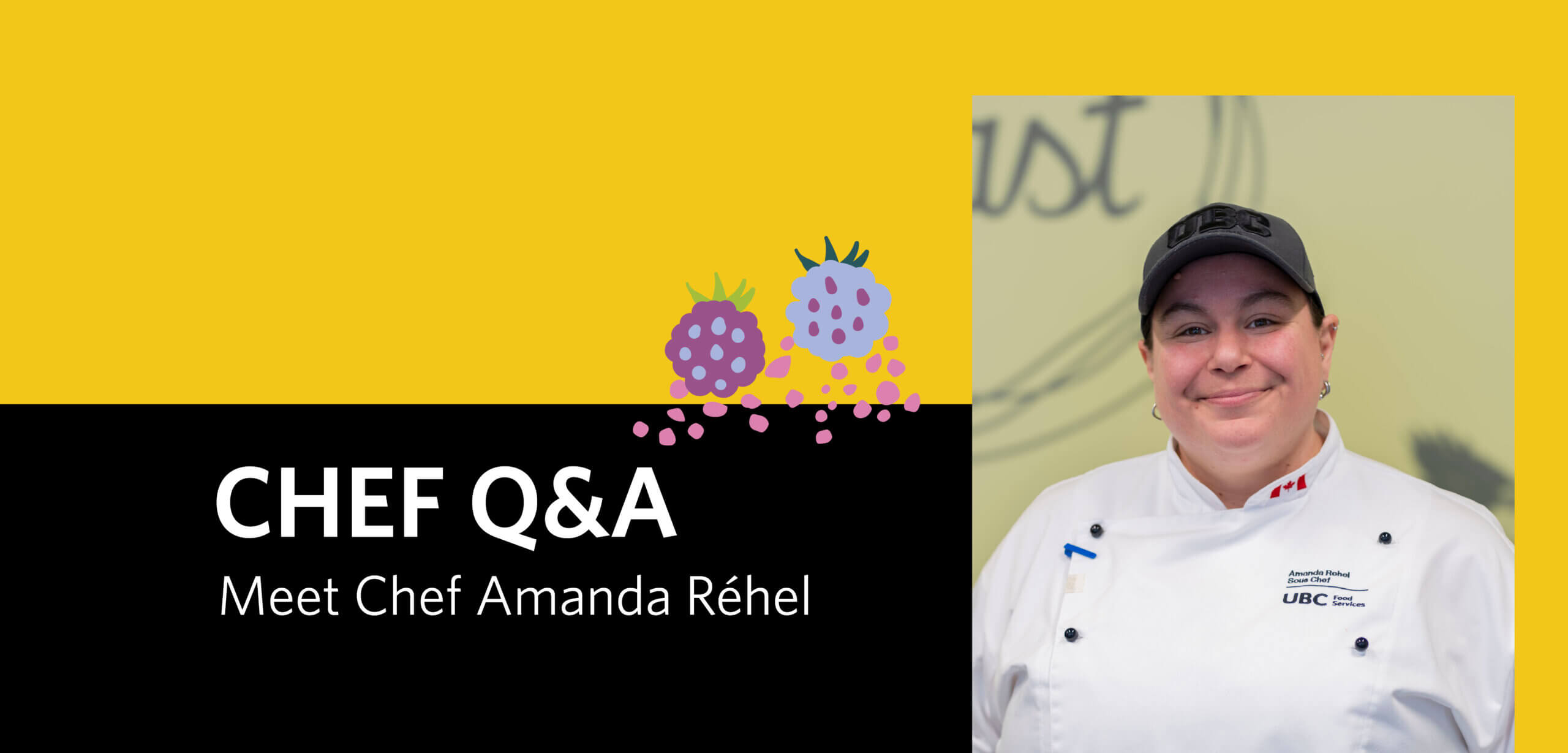Do you know how much protein you need each day? Having trouble figuring out how much protein you’re already eating? Here is a breakdown of what you need to know about protein in your diet.
What is protein & Why is it important?
Protein is one of the three macronutrients (carbohydrate, fat, and protein) that are essential to our health and wellbeing. We need to consume all of these macronutrients in order for our bodies to function properly.
Protein is made up of building blocks called amino acids, which are present in all the cells in our bodies. We use protein to build up our immune system, muscles, skin, and nails!
There are many sources of protein and they are used by our bodies as fuel, such as animal-based options like meat, fish, eggs and dairy, as well as plant-based options like tofu, lentils, chickpeas, nuts and quinoa. Plant-based protein sources also provide an abundance of minerals and fibre to keep our bodies healthy. Read more about how fulfilling and nourishing plant-based proteins are here.
How much do I need in a day?
There are a few ways to figure out how much protein you personally need to consume:
First, you could eat a daily protein intake of around 0.8-1.2 g per kg body weight, or around 50% of your body weight in pounds (e.g. a 150 lb adult may need 75 grams of protein each day). This is a rough estimate and it is not always accurate because some people may do well with less protein than this, whereas those who are athletes, body builders or healing from an illness/injury likely need to consume more than the following calculations would suggest.
The second way is a lot easier, you simply follow the plate model by Canada’s Food Guide for most of your meals! If you make sure a quarter (¼) of your plate is made of protein-rich foods and you eat until you are satisfied but not uncomfortably full, then you did it! This method is easily adaptable for days where you may naturally need more or less, since this can fluctuate a bit on a daily basis.
Wondering how to make a ¼ plate full of protein foods? Start with standard portions and adjust from there. Try a palm-sized (3-4 oz) serving of meat/fish, two eggs or a fist-sized (¾ cup) serving of legumes (beans/lentils/chickpeas/tofu). A small handful (¼ cup for nuts) is a great protein snack, and a ¾ cup of Greek yogurt makes a good base for a protein-rich breakfast!
How do I know how much protein is in foods?
Here are some estimations of protein content in certain foods based on 1 cup (250 ml) or standard serving sizes:
| Food | Protein content in grams | Portion |
| Ground beef | 21.8 g | Per 75 g serving |
| Chicken | 21 g | Per 75 g serving |
| Shrimp | 17 g | Per 75 g serving |
| White fish | 16.8 g | Per 75 g serving |
| Tempeh | 13.5 g | Per 75 g serving |
| Edamame | 23.5 g | Per cup (250 ml) |
| Lentils | 18.9 g | Per cup (250 ml) |
| Extra firm tofu | 18.5 g | Per cup (250 ml) |
| Firm tofu | 16.8 g | Per cup (250 ml) |
| Pinto beans | 16.3 g | Per cup (250 ml) |
| Black beans | 16 g | Per cup (250 ml) |
| Chickpeas | 15.3 g | Per cup (250 ml) |
| Soft tofu | 12.6 g | Per cup (250 ml) |
| Quinoa | 8.6 g | Per cup (250 ml) |
| Dairy milk (2% m.f.) | 8.5 g | Per cup (250 ml) |
| Soy milk | 6.7 g | Per cup (250 ml) |
| Barley | 3.75 g | Per cup (250 ml) |
| Almonds | 6.8 g | Per 25 almonds |
| Eggs | 5.9 g | Per cup (250 ml) |
Click here for a longer list of plant-based protein options and the amounts of protein in each.
Takeaway
Protein is important for your body to function, and is found in many different types of foods. Now that you know where to get protein in your diet, you can go on to create endless combinations of protein-rich meals using the plate model by Canada’s Food Guide!
